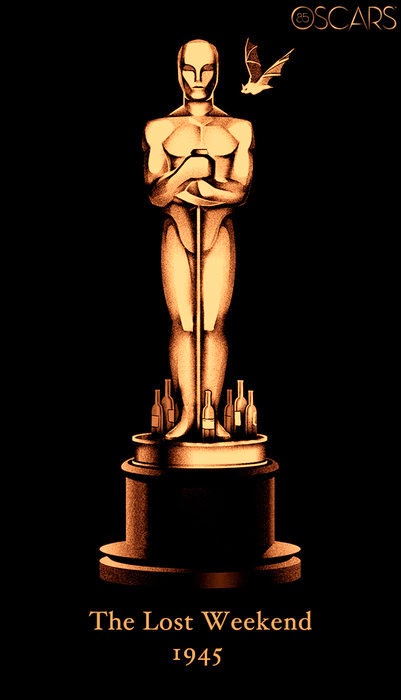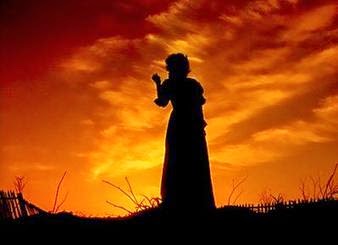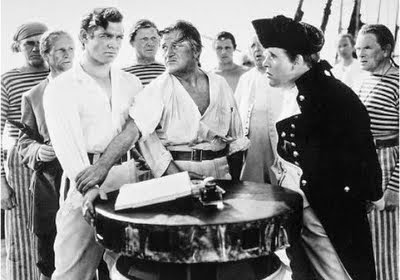Director: William Wyler
Starring: Fredric March, Myrna Loy, Dana Andrews
Other Oscar Wins: Best Actor in a Leading Role (Fredric
March), Best Actor in a Supporting Role (Harold Russell), Best Director, Best
Writing, Best Film Editing, Best Score
Other Oscar Nominations: Best Sound
Favourite Line: "You see, Mr. Milton, in the Army I've had to be with men when they were stripped of everything in the way of property except what they carried around with them and inside them. I saw them being tested. Now some of them stood up to it and some didn't. But you got so you could tell which ones you could count on."
 |
| Harold Russell, Dana Andrews, and Fredric March. |
William Wyler's The Best Years of Our Lives is a lovely and touching film about hope and perseverance. It features a very large, and very talented cast, and is a very unique look at the Second World War, and the toll it took on the everyday lives of the soldiers who fought in it.
The Best Years of Our Lives is the story of three World War Two veterans returning home, and their struggle to re-adjust to their lives outside of the war. One returns to his wife of 20 years and his two children, who he no longer recognizes. He begins drinking, and finds he has dramatically different opinions concerning his pre-war job at a bank. Another comes home to the wife he married fewer than 20 days before leaving, only to find that perhaps they aren't as suited for each other as he had hoped. He also finds he cannot keep a job, looses all his money, and falls in love with another woman. The third, who lost his hands to the war and now wears hooks instead, finds the pitying stares of strangers and loved-ones alike to be unbearable. He struggles to re-connect with his girlfriend, and worries he will no longer be enough for her, or will scare her away.
 |
| Art by Olly Moss. |
This is a very moving and emotional picture, which carries you seamlessly between all three stories. The actors are all brilliant, but most the most notable performance is that of Harold Russell, who in fact won the Oscar for Best Supporting Actor for his role as Homer, the young man who lost his hands. He was discovered by director William Wyler in an army training film, Diary of a Sergeant. In the original script for The Best Years of Our Lives, Russell's character was a victim of emotional and mental trauma, but when Russell was cast in the picture, the role was re-written to deal with Russell's real-life disability.
An interesting fact about The Best Years of Our Lives, was that William Wyler wanted to give the film a very realistic, almost documentary-like feeling. To accomplish this, he actually hired all his crew from the ranks of World War Two veterans. He also wanted all the costumes to be store bought, and worn by the actors in regular life prior to filming.
The Best Years of Our Lives is a lovely film, and I would highly recommend it to anyone interested in the Second World War, or just in wonderful filmmaking.































